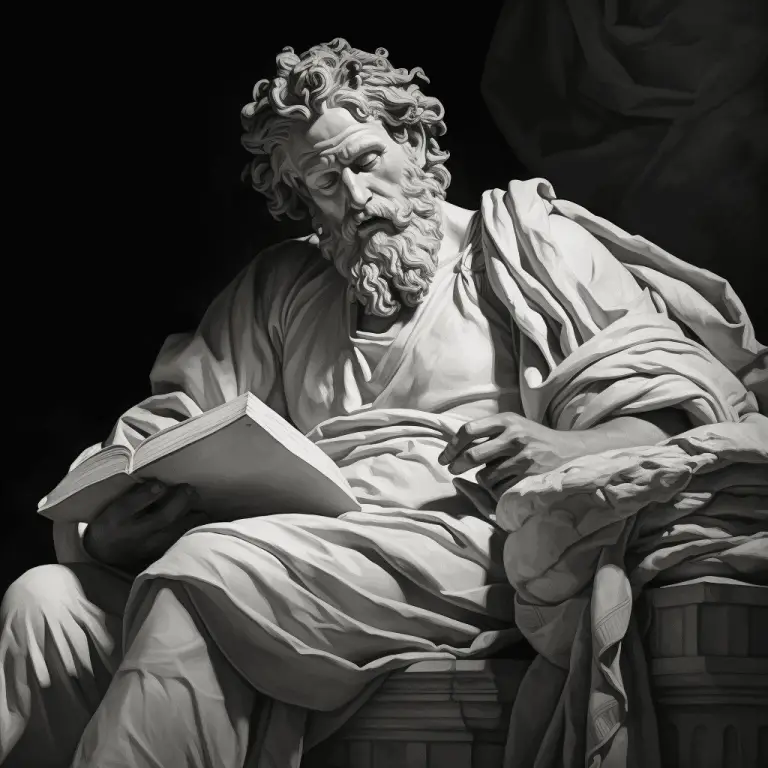What is a noble lie Plato? In Plato’s Republic, the concept of a noble lie is introduced as a means to establish and maintain social order within the just city. A noble lie refers to a deliberate falsehood crafted by the rulers for the sake of promoting harmony and stability among its citizens. As I delve deeper into this intriguing aspect of Plato’s political thought, I uncover its significance in understanding his vision of an ideal society.
According to Plato, the noble lie is not merely a fabrication but rather a carefully constructed myth that serves as a unifying force in society. In his dialogue, Socrates argues that different metals represent different classes in society – gold for the elite guardians, silver for the auxiliaries, and bronze or iron for the producers. This stratification suggests that individuals are born with distinct abilities and responsibilities based on their innate qualities.
The purpose behind this bold flight of imagination is strongly motivated by Plato’s belief in human nature and his desire to create an orderly and harmonious society. By accepting these myths as truth, fellow citizens would embrace their roles within society without questioning them. The noble lie acts as both an educational tool and a cohesive force, shaping individuals’ perspectives on justice, duty, and their place within the larger political framework.
To explore further about Plato’s noble lies and its implications on his political philosophy, one can refer to scholarly resources such as Cambridge University Press or Stanford Encyclopedia of Philosophy. These sources provide insightful analyses from renowned scholars like Leo Strauss and offer valuable context to enrich our understanding of this subversive conventionalism employed by Plato.
As we navigate through Plato’s Republic, it becomes apparent that his use of noble lies challenges conventional notions of truth-seeking while highlighting the delicate balance between individual liberty and societal cohesion. The philosophical underpinnings behind these stories shed light on how words can be used strategically to shape meaning, perpetuate certain values, and ultimately mold an ideal city-state.
Exploring Plato’s noble lie in the context of his Republic reveals an intriguing aspect of his political thought. By utilizing myths and falsehoods, Plato aims to maintain social order, establish a just society, and mold the citizens’ understanding of their roles within it. Understanding the complexities behind these lies provides valuable insights into Plato’s vision of a harmonious and ordered city-state.
What Is a Noble Lie Plato: Plato’s Perspective
Plato argues that human nature is such that not everyone is capable of embracing philosophical truths and governing with wisdom. He believes that society requires an ordered hierarchy led by philosopher-kings or guardians who possess superior knowledge and virtue. These elite guardians are responsible for ensuring societal harmony and justice.
Plato’s endorsement of noble lies has sparked much debate among scholars over its ethical implications. Some argue that it represents a form of subversive conventionalism where truth is sacrificed for political stability. Others contend that it reflects Plato’s belief in the transcendent power of philosophy and its ability to guide society toward justice.
Examples of Noble Lies in Plato’s Works
Plato, the renowned philosopher from ancient Athens, introduced the concept of a noble lie in his seminal work, The Republic. A noble lie is a deliberate falsehood told by the ruling class for the greater good of society. In this section, we will explore some examples of noble lies found within Plato’s works and examine their significance.
The Myth of the Metals: One prominent example of a noble lie is presented in The Republic when Plato describes the creation of a just city. To ensure social harmony and stability, Plato suggests that people are born with different metals in their souls: gold for rulers, silver for auxiliaries (military), and bronze or iron for commoners. This myth justifies a hierarchical society where each individual has a predetermined role based on their innate qualities.
Guardians as Philosopher-Kings: In The Republic, Plato argues that only those with exceptional wisdom and virtue should rule over society. To maintain order and prevent power-hungry individuals from seizing control, he proposes an elite group called guardians who possess both intellectual prowess and moral integrity. The belief in these philosopher-kings becomes a necessary deception to uphold the ideal state envisioned by Plato.
Subversive Conventionalism: Another notable instance occurs when Socrates discusses political thought with his interlocutors in various dialogues attributed to him by Plato. Socrates challenges conventional beliefs about justice, urging his fellow citizens to question societal norms and values critically. By presenting alternative perspectives that challenge established truths, Socrates engages in what can be seen as a form of noble lying aimed at promoting self-reflection and personal growth.

